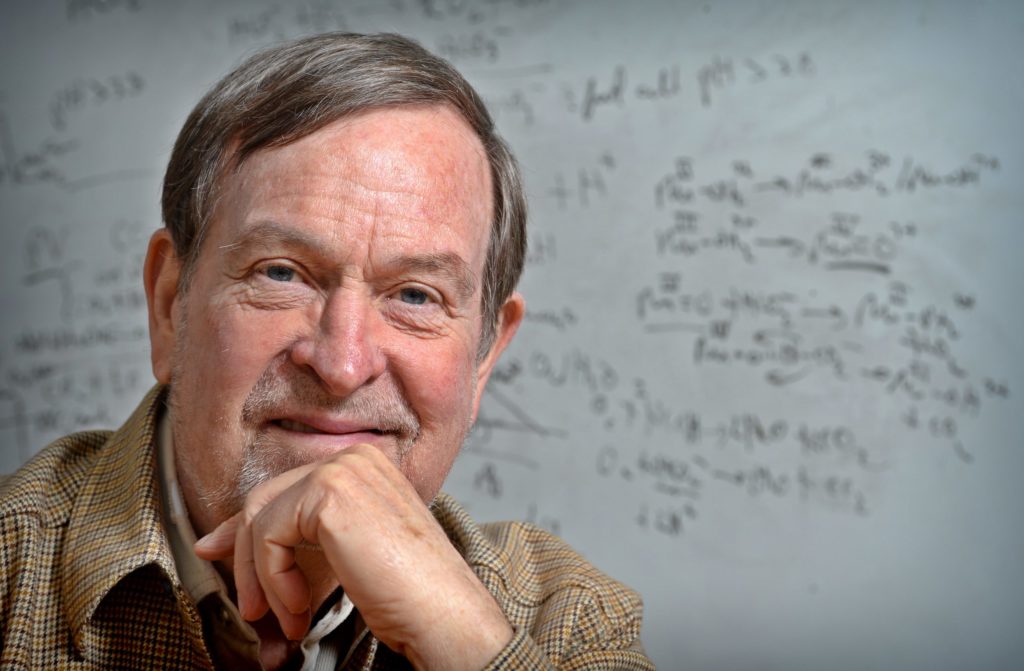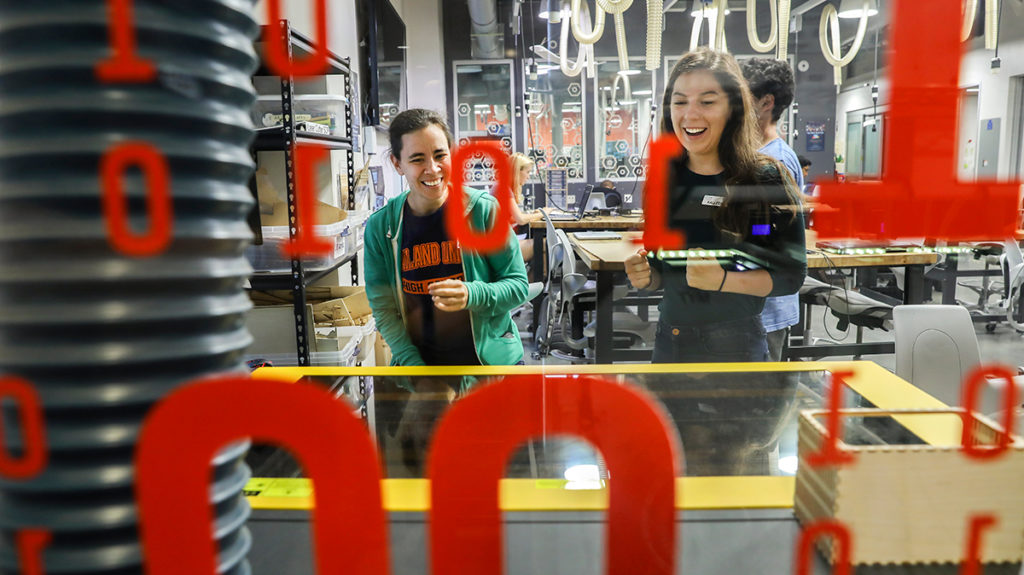
Biologist Amy Gladfelter of the University of North Carolina at Chapel Hill has been named a Howard Hughes Medical Institute (HHMI) Faculty Scholar, a designation awarded to “early-career scientists who have great potential to make unique contributions to their field.”
Gladfelter is an associate professor of biology in UNC’s College of Arts and Sciences and an adjunct scientist in cellular dynamics at the Marine Biological Lab in Woods Hole, Massachusetts. She came to UNC from Dartmouth College in July 2016. She received a B.A. from Princeton University and a Ph.D. from Duke University.
Gladfelter was among 84 faculty scholars from 43 institutions to receive the award in an announcement made Sept. 22 by HHMI, the Simons Foundation and the Bill & Melinda Gates Foundation. This is the first collaboration among the three philanthropies, who joined forces to create the program in response to growing concern about the significant challenges that early-career scientists are facing.
“We are very excited to welcome these accomplished scientists into the HHMI community,” said HHMI president Erin O’Shea. “We’re equally gratified to work alongside our philanthropic partners to help these early-career scientists move science forward by pursuing their bold ideas.”
With the HHMI Faculty Scholar award, Gladfelter will continue her research on how the physical properties of molecules lead to cell organization and function. Her research focuses on two areas: How multinucleate cells are organized in time and space, and how cells perceive their shape and use geometry to inform signaling and decision-making. Although her passion is for understanding the fundamental properties of cells, this work brings insight at the molecular level to triggers of neurodegenerative diseases and cancer. For example, proteins and molecules under investigation in her lab have been shown to have aberrant function in different disease contexts.
Gladfelter’s lab uses advanced fluorescence microscopy approaches, taking advantages of both polarized light and single-molecule approaches, to study cell organization in both live cells and in reconstituted systems.
“In textbooks, most of the cell is shown as an empty space. In reality, the cytosol [the aqueous component of the cytoplasm of a cell] is a busy, packed jungle of warring molecules bombarding one another,” Gladfelter said in a 2014 video produced by the American Society for Cell Biology. “The closest experience we can compare to being inside of the cell is being on a crowded, rush-hour street or subway car. To study this invisible, frenetic world, we use microscopes to peer at simple model cells such as fungi. … We would be nowhere in our understanding of human biology without understanding how a cell functions.”
HHMI plays an influential role in advancing scientific research and education in the United States. Its scientists, located across the country and around the world, have made important discoveries that advance both human health and a fundamental understanding of biology.



